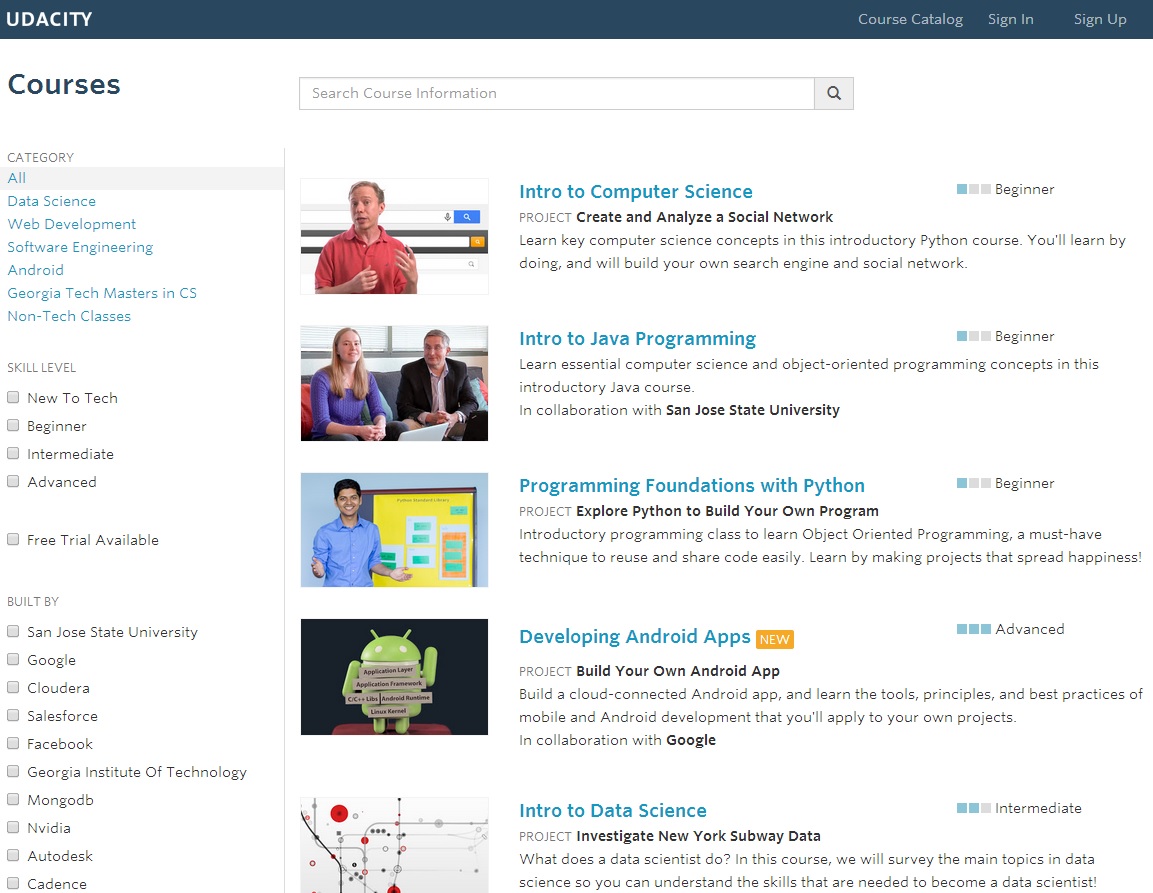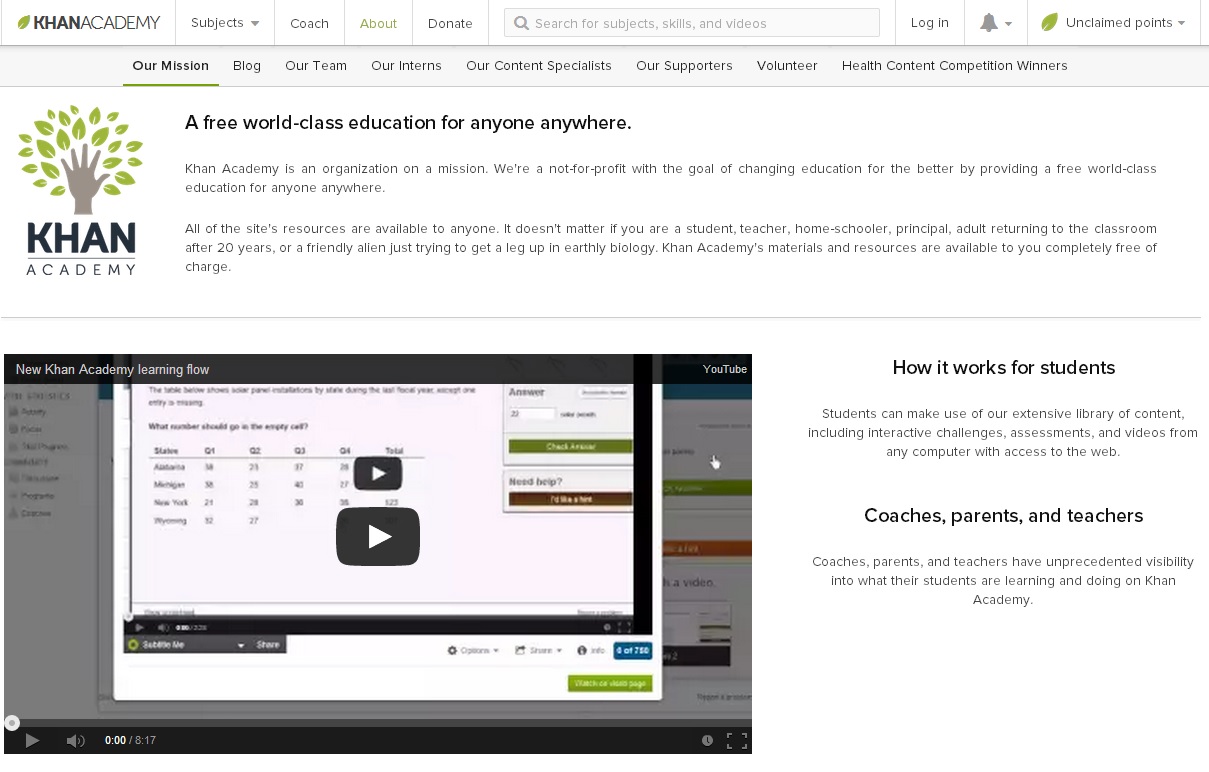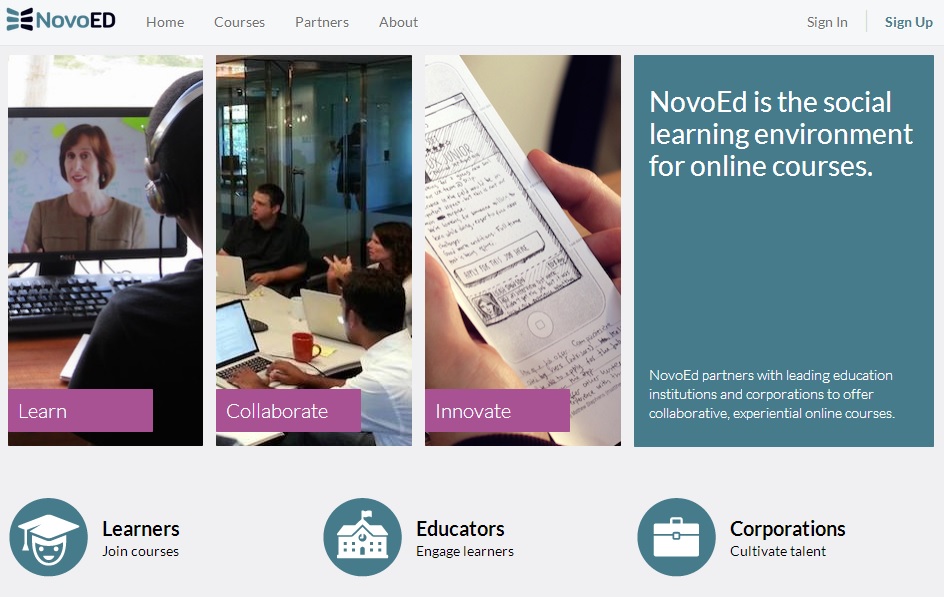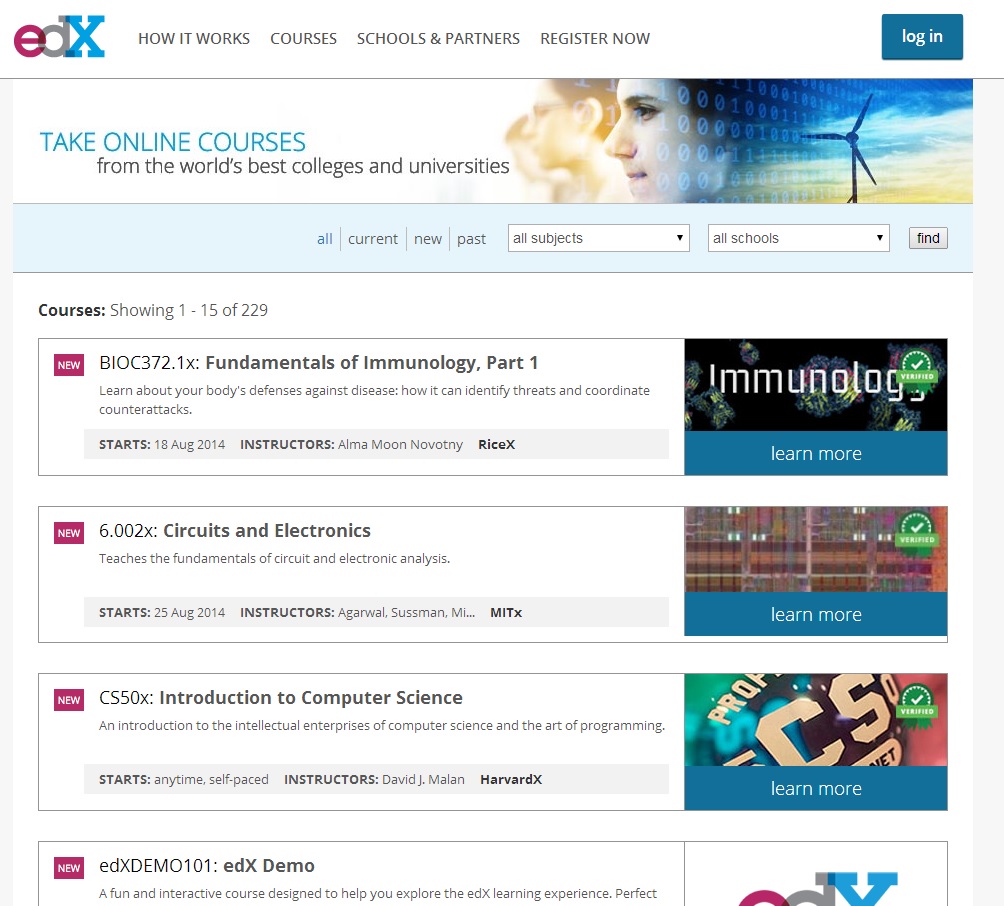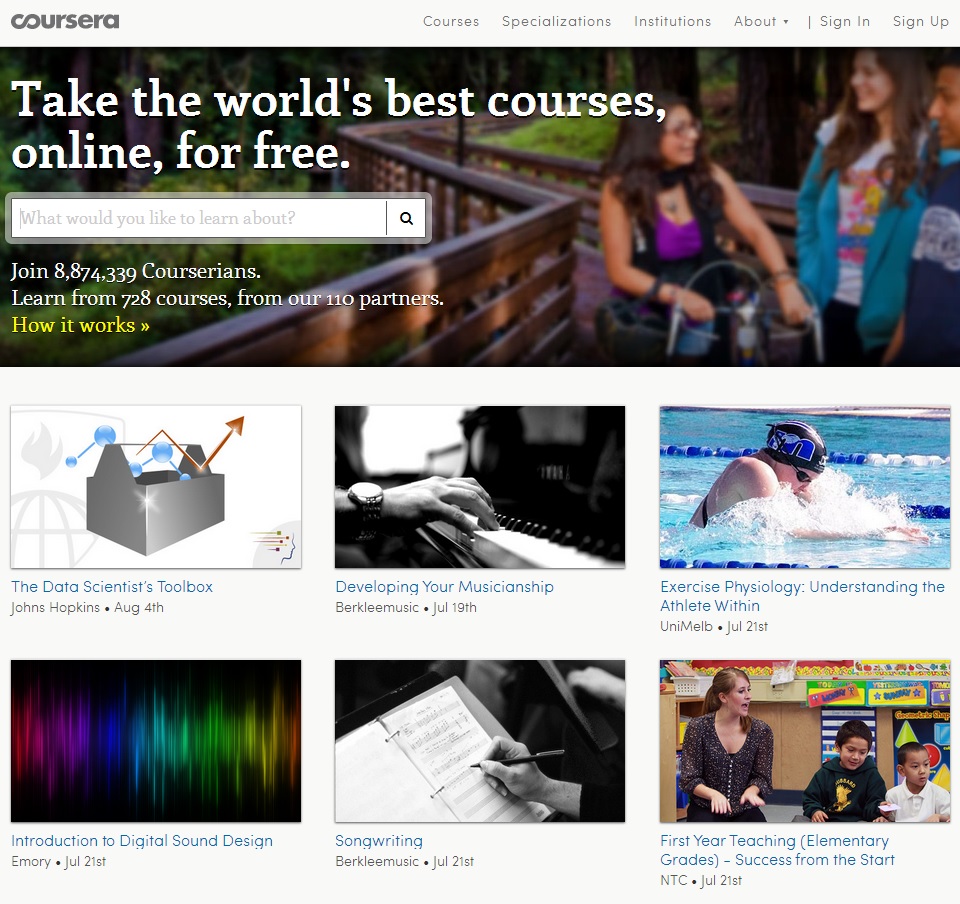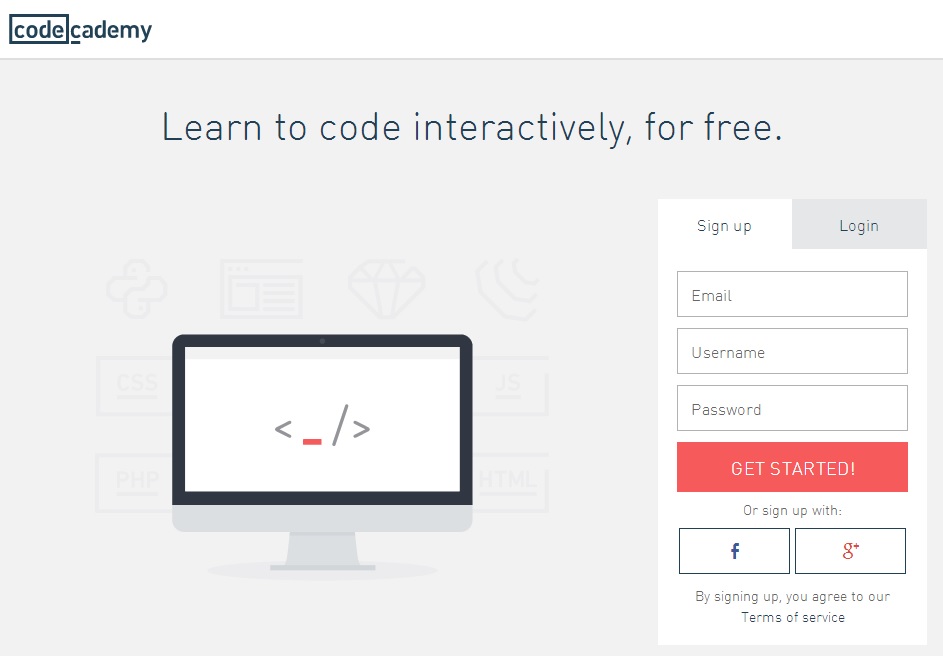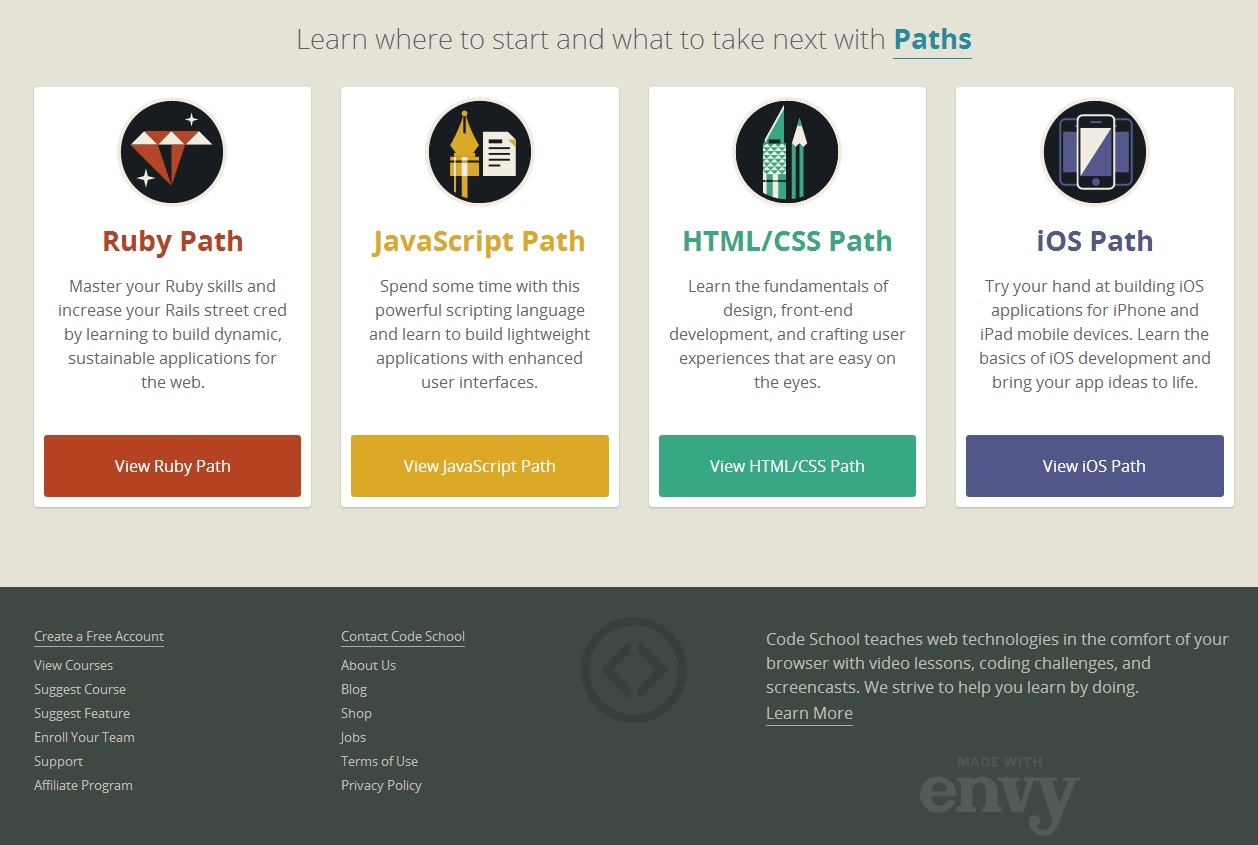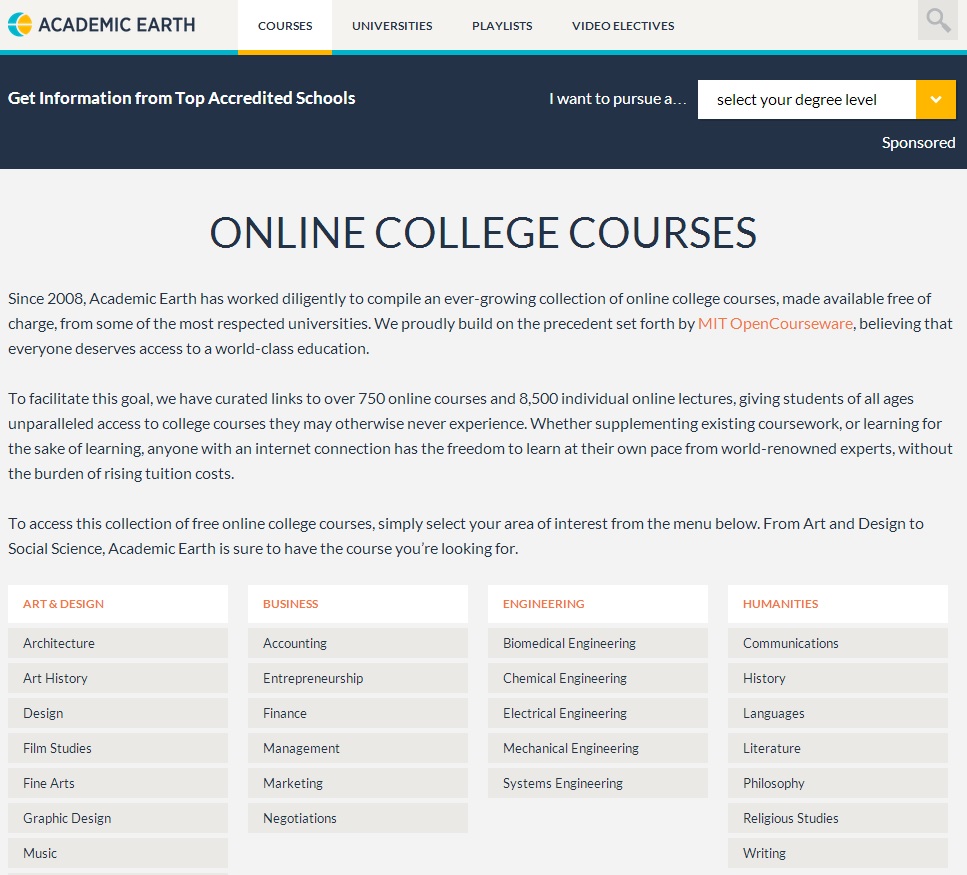Free Education You Can Use Now
The Internet, and technology in general is implicated with a number of exciting and disruptive changes in education. Some of the ways in which these technologies affect change is in production, scaling, reach and distribution. The result: decentralised, affordable, in many cases free, and scalable education for the those who have not had access to it before.
With the advent of computer based training at the dawn of the computer age educational instructional design principles from traditional offline methods have been extensively utilised in corporate and organisational settings. In the 90’s and 2000’s as technology continued to advance the sophistication of “e-learning” and blended learning programs which were developed made use of functions that were only available on computers such as interactive and multimedia elements.
E-learning programs were, and are, utilised a lot in professional training environments where they have reduced costs and provide consistent training to dispersed corporate offices compared to face to face training. They also allow companies to reduce costs and development time for creation of training which is likely to change often such as compliance or product training. By and large however the relevance of these courses and this industry is limited to their corporate or professional fields.
More recently the internet has allowed for mass distribution and the ability to scale courses in a way that has utility for wider society. The related technologies and awareness has also advanced or increased and this can be attributed to the OpenCourseWare movement. Now, we are seeing a potential advancement in the way that the content itself can be delivered and the cost to the student in many cases can be free. There are also commercial organisations trying to create new forms of interactive e-learning most notable for helping students learn how to code.
While some (such as myself) say that online course delivery will not, and should not and cannot, replace the rich interactive nature of face to face classroom learning the reality is that this should not be part of the argument; simply, there is a huge practical benefit of being able to scale courses in a way that does not increase costs significantly past the creation of the content. More so when you consider that most people cannot afford or cannot physically access to an ideal face to face classroom (with a knowledgable teacher). Much like the internet allowed many to download their favourite songs and interact with the bands, courses created ready to be shared can be easily searched, sorted, accessed and utilised and a community of practice is often just an email or forum post away. Institutions and companies that create these courses which are able to be distributed anywhere over the internet are essentially enabling education at a common standard of quality which until now many parts of the worlds would simply not have access to. It’s the distribution aspect which is most exciting and liberating.
For example, a student anywhere in the world with a good enough internet connection can undertake the exact same Computer Science 101 classes which are being taught at Stanford University, the same Stanford whose alumni consists of founders and executives of some of the most famous technology companies today such as Google, Yahoo, LinkedIn, Instagram and Apple etc. I personally watched this class while living in Cebu and while I missed out on the assessments, class mates and paper based notes I did follow all the exercises and lectures- not bad at all since I won’t be going to Stanford any time soon and all this I got for free! Welcome to the world of the MOOC.
Many classes from world renowned universities are being recorded, while lecture slides are made available online and the segments of the recordings are ‘activated’ for an online audience by being split and presented in a way users can enrol and benefit from the structure of the course itself. What this is doing is creating the ability for students, literally in the hundreds of thousands if not millions, to access training material in a structured manner from some of the most prestigious institutions in the world, where otherwise they would not have the ability to access courses and training sessions at all, or at the quality level provided.
At Synacy we encourage our staff to enrol in online education to help them get better at what they do and gain knowledge from leaders in the field. Here we’ve put together some of the sites available to give you an overview. Some of them we’ve used, others we haven’t but if you haven’t seen or heard of the educational opportunities available online then we hope you’ll get excited as we are and start studying 🙂 – we’ve included Open Course Ware providers, commercial outfits and some crowdsourced sites to give a sense of how these differ and show a few different flavours of free internet enabled education.
Udacity
Udacity provides different tech and non-tech courses for beginners and advanced learners. Tech courses include Web Development, Data Science, Android and Software Engineering, while non-tech courses include Entrepreneurship, Design, Math, Physics and Genomics. Udacity also offers tech courses for industries featuring experts from Google, Salesforce, Cloudera and more.
We particularly like:
Intro to Computer Science – Build a Search Engine & a Social Network
Web Development – How to Build a Blog
Intro to Psychology – The Science of Thought and Behavior
Intro to the Design of Everyday Things – Principles of Design
Intro to Java Programming – Building Programs with Classes & Objects
Khan Academy
Khan Academy was created with the mission to provide “a free, world-class education for anyone, anywhere.“1 Covering wide topics from humanities, STEM subjects, and others, it hosts videos on YouTube which have been watched close to 500 million times. Khan Academy also offers great admin features which allow course leaders to look over their student performance.
We particularly like:
Novoed
Novoed offers free and paid courses on Entrepreneurship, Finance, Business Strategy, Education, Design & Creativity, Math & Science and Humanities, among others. They have partners with the best institutions in the world to provide different online learnings, among these are Princeton University, Silicon Valley Education Foundation and Berkeley School of Business.
We particularly like:
Technology Entrepreneurship (From Stanford Online)
MIT OpenCourseWare
MIT OpenCourseWare (OCW) is an open web-based publication of virtually all MIT course content. Their idea is to simply publish all of our course materials online and make them widely available to everyone. OCW is open to both educators and students and the materials are available in different languages. While the course selection is amazing not all courses include videos so we recommend you start at the Audio/Video Lectures section.
EdX
EdX offers interactive online classes and MOOCs from the world’s best universities, with more than 200 courses in subjects like Arts & Culture, Architecture, Computer Science, Economics & Finance and Law, among others. The nice thing about EdX is for some courses they give you a way to look at the content for free, or pay for credits or certificates.
Udemy
Udemy is a bit of a crowd sourced training provider. That is to say they allow anyone to create a structured course and charge for it. We’re including it here as it’s a different model to most of the other websites on the list.
Coursera
Coursera is an education platform that partners with top universities and organisations worldwide, to offer courses online for anyone to take. Coursera has languages other than English too.
Codecademy
Codecademy courses includes HTML & CSS, JavaScript, jQuery, Python, Ruby, PHP and APIs. For teachers, free lesson plans are offered for primary and secondary computer science curriculum which can be downloaded. They can also track pupils and their individual performance easily with provided tools.
The courses at Code Academy that would suit would depend heavily on your experience, so be sure that the skill level suits you.
Code School
Code School is an online learning platform that teaches a variety of programming and web design skills. Courses are organized into learning Paths, which start with introductory courses and move downward to more advanced courses. Courses include JavaScript, Ruby, HTML/CSS, iOS and Electives such as Git courses, the R language and Chrome Dev tools. Screencastings and videos are used to better guide the learners on how to code.
We particularly like:
Academic Earth
“Academic Earth was launched on the premise that everyone deserves access to a world-class education.“2
Academic Earth is an aggregator of various open education courses and sites. We like everything about it but be prepared for the site to push you to other sites or providers.
Skillshare
Skillshare is an online learning community to master real-world skills through project-based classes. It looks as if some classes are offered on a trial basis where you have to pay $10/month to continue. Site also looks tailored towards more discrete learning than a full course with a focus on arty design type things.

